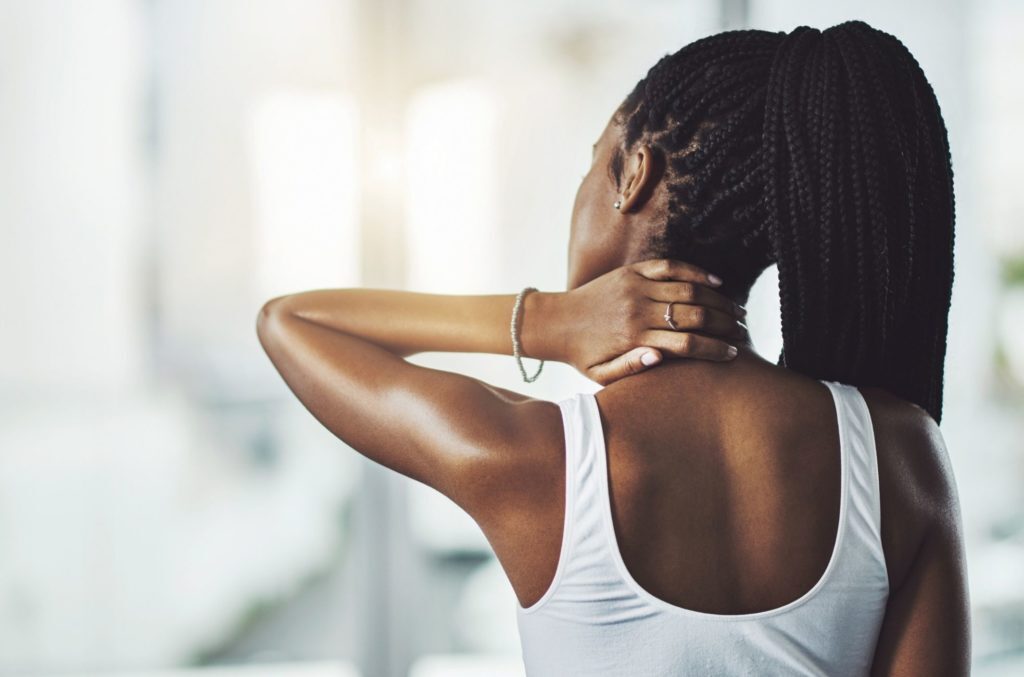Medical Review by Heidi Moawad MD
Summary
- Impact on Sleep: Depression can cause both insomnia and hypersomnia, affecting your ability to fall or stay asleep.
- Chronic Fatigue: Those with depression often experience significant lethargy and slowed physical and mental processes.
- Physical Pain: Common symptoms include muscle aches, joint pain, back pain, and headaches due to increased pain sensitivity and inflammation.
- Digestive Issues: Depression can lead to gastrointestinal problems like nausea, diarrhea, appetite changes, and cramps.
- Other Physical Symptoms: These include dizziness, vision problems, low libido, restlessness, and skin disorders, all of which are linked to depression.
- Holistic Treatment: Effective strategies involve medication, talk therapy, lifestyle changes, and a multidisciplinary approach to address both mental and physical symptoms.
Most people know how emotionally taxing mental health issues can be. But what many people don’t know is that when you have depression, physical symptoms can impact you significantly. Let’s look at 13 physical symptoms of depression, why they occur, and what you can do to start feeling better.
Mental health conditions like depression impact not only your mind, but can also cause physical symptoms in your body.
1. Issues with sleep
It’s common for depressive disorders to cause issues with sleep—both sleeping too much, known as hypersomnia, or too little, insomnia. People with insomnia are at increased risk for depression, and more than half of people with depression report trouble falling or staying asleep. Some researchers even believe that depression and insomnia share common neurobiology.
2. Fatigue
Depression can slow your whole system down—one reason people with depression sometimes move and speak more slowly than usual, to the point that it’s noticeable to others or challenging to function. Feeling lethargic is quite common with this condition.
There may be a reason for this. The polyvagal theory actually sees depression as a part of the human body’s biologically intelligent makeup. According to this theory, depression might be your body’s physiological response to perceived danger or defeat.
This theory hypothesizes that depression is the same kind of survival response an animal has when it freezes or shuts down when confronted with a threat. This may contribute to some of the changes you experience with sleep and your energy level.
When you have depression, your sleep schedule may change dramatically. You may slow down in your speech, movements, and even in your mental processes. Many people experience this decrease in energy as fatigue.
Depression is exhausting and the emotional burden, rumination, or sadness consume a great deal of energy—which contributes to fatigue.
3. Muscle aches
Having depression can worsen bodily inflammation. Researchers have found that pain mediators produced in response to inflammation can induce depressive symptoms. On top of that, some studies show that depression can increase pain sensitivity, though conflicting research also exists.
According to polyvagal theory, feelings of pain—both physical and mental—may arise to keep you from expending unnecessary energy. Muscle aches and other kinds of pain may keep you from working or spending time with others.
4. Joint pain
Vague aches and pains can be some of the first symptoms of depression. Many people seeking medical advice for joint pain and other types of physical pain only have physical symptoms, making it especially challenging to diagnose depression.
But the relationship between pain and depression is bi-directional, meaning that depression can lead to more significant pain and that higher pain levels can bring on depression.
Serotonin and norepinephrine are neurotransmitters that impact both pain and mood. An imbalance in these transmitters is linked to both depressed mood and the physical experience of pain.
5. Digestive issues
Emotional stress often occurs with conditions like irritable bowel syndrome (IBS) or general gastrointestinal issues. The symptoms of these conditions include nausea, diarrhea, appetite fluctuations, and cramps. You might also experience a sinking feeling in the stomach. All of these can be interrelated with emotional stressors and mental health conditions like anxiety and depression.
You may have heard about the brain-gut connection. The millions of nerve cells that line your gastrointestinal system can receive and send messages to your brain. Irritation or imbalance in the digestive system can impact mood, just as emotional stress can affect digestion.
6. Dizziness or lightheadedness
Psychological conditions such as anxiety and depression can present with dizziness or lightheadedness as a symptom. Some research indicates that as many as 20% of people with dizziness experienced high levels of psychological distress.
7. Back pain
Chronic or severe back pain puts you at risk for major depression because the stress pain causes your whole system. Especially if you’re already experiencing emotional stress, depression can magnify your thoughts and physical sensitivity to pain. In addition, increased pain, especially chronic pain, can lead to feelings of depression and hopelessness.
8. Headaches and migraines
Depression headaches are another common physical manifestation of depressive disorders. Cluster headaches, tension headaches, and migraines are frequently reported by people experiencing depression.
9. Changes in hunger and weight
Depression can lead some people to seek comfort by eating more than usual and binge eating. For others, having depression can lead to less interest in food and a decreased appetite. Fluctuations away from your healthy baseline of appetite and weight can be related to depressive disorders.
10. Low libido
A key symptom of depression is anhedonia, a decreased ability to enjoy activities that are typically pleasurable. And this doesn’t just apply to your hobbies. When your body is stressed by depression, physical symptoms such as low sex drive can lead to erectile dysfunction, inability to achieve orgasm, and even a complete lack of interest in sex.
11. Feeling restless and fidgety
Some people experience co-occurring symptoms of anxiety and depression, which are sometimes described as agitated depression. Instead of feeling lethargic, you may be unable to sit still. With agitated depression, you may also feel more impulsive, irritable, and restless.
12. Vision problems
People with impaired vision are at increased risk for depression. Similarly, people who are currently depressed often report seeing the world as looking “dull” and are less perceptive to visual contrasts. And studies show that among older adults, issues with vision and vision loss are among the most common conditions associated with depression.
13. Skin reactions and disorders
Issues with your skin, especially chronic or recurring conditions such as psoriasis or eczema, are correlated with elevated risk for certain depressive disorders. Skin issues are also a commonly occurring effect of anxiety on the body.
Can depression make you sick?
Yes. The same system in your brain that moderates experiences of physical pain also moderates moods. Depression can be experienced and expressed in the mind and body as emotional, behavioral, cognitive, and physical symptoms.
For example, when you’re feeling sad, avoiding life, and engaging in negative thinking, you may experience physical signs of depression, such as body aches and pains.
Further, experiencing chronic pain or illness increases your risk for depression. Depression can also cause physical pains in your body. Cytokines, the immunomodulating molecules released by cells, are a bidirectional factor in both bodily inflammatory symptoms and depression.
These feedback loops can leave you feeling exhausted and drained. In fact, multiple studies have shown that the majority of people with depression report somatic or bodily symptoms.
Simultaneously experiencing physical and emotional symptoms increases how unpleasant and disruptive depression is. People with more symptoms report more challenges in critical areas of life such as employment and healthy activity levels. These symptoms can also cause disruptions and difficulties in relationships.
Some studies have shown a correlation between experiencing more physical pain and longer-lasting depressive episodes.
There’s also a high correlation between the use of alcohol and depression. Many people who have depression seek relief from its symptoms with alcohol and other substances, leading to an increased risk of addiction. Unfortunately, drinking and substance use can make mental health issues worse over time—leading some people to experience immediate effects like hangover depression or anxiety after drinking.
Treatment
Many of the treatments that ease mood symptoms can also ease physical symptoms. The more ways you can increase care and treatment for your body-mind, the faster your recovery may be. Understanding what’s happening is an essential step in finding the treatments and lifestyle changes that will help you recover.
Medication
Your healthcare provider may recommend antidepressant medications that impact norepinephrine and serotonin levels, neurotransmitters that facilitate communication in the brain. If you’re interested in talking with a medical professional about whether medication for depression would be a good fit for your needs, visit Lemonaid.
Identify triggers
Relatively small adjustments to your routine can reduce triggers for both depression and pain. For example, avoiding bedtime social media usage may improve sleep quality, leading to improved mood and reduced pain flare-ups. Reducing inflammatory foods in your diet might also improve mood, energy, and sleep quality.
Talk therapy
Maladaptive responses to pain can intensify and worsen the challenge. For example, catastrophizing about pain can mean you experience it for longer. Talk therapy can be a place to find support and learn new coping skills and cognitive strategies.
A therapist can also help you identify people or factors in your life that are dragging you down and help you redirect your time to more positive influences.
Take a holistic approach
The most effective treatment strategies are those that take your whole self into account. Don’t be afraid to ask your healthcare providers about their familiarity and experience with your symptoms.
It can also be beneficial to permit your providers to work across disciplines. When your psychiatrist, primary care doctor, and therapist can exchange and update medical information, they’re more likely to understand how to support your whole body health as a care team.
Takeaway
- Physical illness and depression are correlated and bi-directional, meaning they may share some of the same underlying processes.
- Treatment for both depression and its physical symptoms includes medication, identifying and avoiding triggers, and talk therapy.
- Seek out a multidisciplinary team of healthcare professionals who can help tailor your treatment to address your symptoms as well as any underlying issues.












